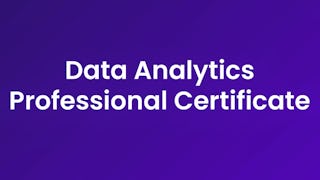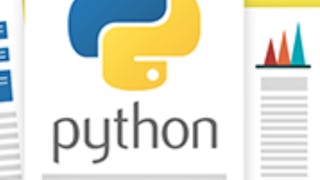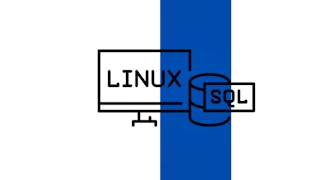Filter by
SubjectRequired
LanguageRequired
The language used throughout the course, in both instruction and assessments.
Learning ProductRequired
LevelRequired
DurationRequired
SkillsRequired
SubtitlesRequired
EducatorRequired
Explore the Transact-SQL Course Catalog

Skills you'll gain: Django (Web Framework), Full-Stack Web Development, Version Control, Restful API, Data Structures, Unix Commands, Bootstrap (Front-End Framework), Git (Version Control System), Back-End Web Development, GitHub, Web Design and Development, Relational Databases, Front-End Web Development, Object Oriented Programming (OOP), Database Management Systems, SQL, Database Design, Unit Testing, Algorithms, Web Development

University of Michigan
Skills you'll gain: Web Scraping, Data Processing, Relational Databases, JSON, Database Design, SQL, Network Protocols, Databases, Web Services, Restful API, Data Modeling, Programming Principles, Data Structures, Data Collection, Data Visualization Software, Data Manipulation, Computer Programming, Python Programming, Data Import/Export, Software Installation
 Status: NewStatus: AI skills
Status: NewStatus: AI skillsDeepLearning.AI
Skills you'll gain: Data Storytelling, Google Sheets, Data Visualization, Data Presentation, Spreadsheet Software, Large Language Modeling, Web Scraping, Dashboard, Pandas (Python Package), Interactive Data Visualization, Time Series Analysis and Forecasting, Probability & Statistics, Statistical Analysis, Statistics, Statistical Modeling, Matplotlib, Data Visualization Software, Data Manipulation, Data Processing, JSON

Skills you'll gain: Data Wrangling, Data Cleansing, Data Analysis, Data Manipulation, Data Import/Export, Exploratory Data Analysis, Data Science, Statistical Analysis, Descriptive Statistics, Regression Analysis, Predictive Modeling, Pandas (Python Package), Scikit Learn (Machine Learning Library), Machine Learning Methods, Data Pipelines, NumPy

Skills you'll gain: React Native, Jest (JavaScript Testing Framework), Version Control, UI/UX Research, Usability Testing, Unix Commands, Restful API, Git (Version Control System), Persona (User Experience), GitHub, Interaction Design, User Experience Design, SQL, User Interface and User Experience (UI/UX) Design, User Interface (UI), User Experience, Mobile Development, Design Research, React.js, Web Development Tools

Skills you'll gain: Bash (Scripting Language), Operating Systems, File Systems, Linux Commands, Linux, SQL, Unix, Database Management, Command-Line Interface, Relational Databases, Authorization (Computing), Authentications, User Accounts

Skills you'll gain: Big Data, Data Analysis, Statistical Analysis, Apache Hadoop, Data Wrangling, Apache Hive, Data Collection, Data Mart, Data Warehousing, Apache Spark, Data Cleansing, Data Lakes, Data Visualization Software

Corporate Finance Institute
Skills you'll gain: SQL, Databases, Data Manipulation, Data Analysis, Relational Databases, Business Intelligence, Query Languages, Data Warehousing, Data Transformation

Skills you'll gain: SQL, Database Management, MySQL, Relational Databases, Database Systems, Query Languages, Databases, Database Application, Database Design, Data Access, Java, User Interface (UI)

Skills you'll gain: Data Ethics, Data Analysis, Data-Driven Decision-Making, Google Sheets, Spreadsheet Software, Analytical Skills, Data Sharing, Data Cleansing, Data Processing, Data Visualization Software, SQL, Data Management

Google Cloud
Skills you'll gain: Google Cloud Platform, Cloud Infrastructure, Application Deployment, Prompt Engineering, Kubernetes, Containerization, Database Architecture and Administration, MySQL, Cloud Computing Architecture, PostgreSQL, Identity and Access Management, Cloud Storage, Data Migration, Cloud Services, Database Administration, Cloud Management, Virtual Machines, Cloud Security, Cloud Applications, Operational Databases
 Status: New
Status: NewVanderbilt University
Skills you'll gain: Data Storytelling, Prompt Engineering, Data Presentation, ChatGPT, Data Synthesis, Microsoft Excel, Productivity, Infographics, Document Management, SQL, Generative AI, Artificial Intelligence, Data Visualization, Data Cleansing, Large Language Modeling, Data Import/Export, Statistical Reporting, Data Integration, Data Transformation, Data Analysis
In summary, here are 10 of our most popular transact sql courses
- Meta Back-End Developer: Meta
- Python for Everybody: University of Michigan
- DeepLearning.AI Data Analytics: DeepLearning.AI
- Data Analysis with Python: IBM
- Meta React Native: Meta
- Tools of the Trade: Linux and SQL: Google
- Introduction to Data Analytics: IBM
- SQL Fundamentals for Data Analysts: Corporate Finance Institute
- Database Management with Java and SQL: Amazon
- Foundations: Data, Data, Everywhere: Google










